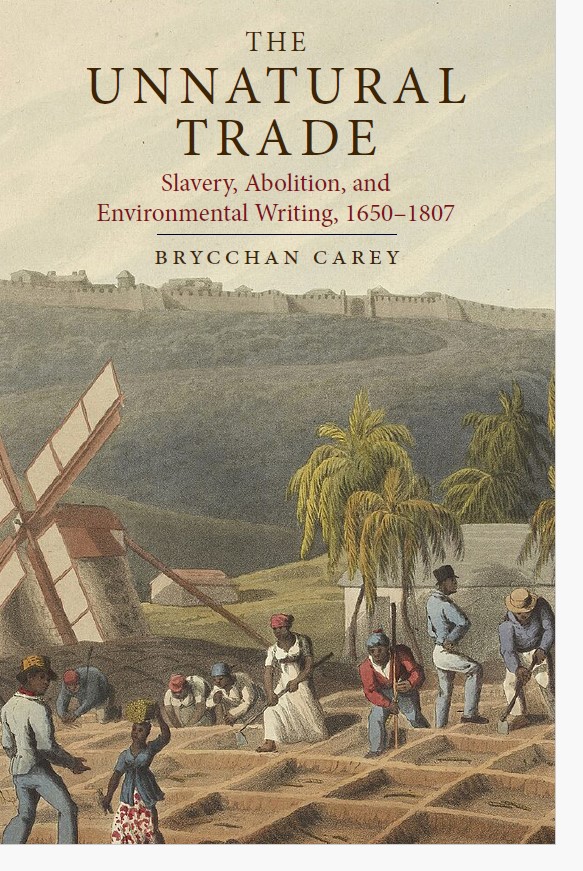The Unnatural Trade
Slavery, Abolition, and Environmental Writing, 1650-1807
Brycchan Carey
How did late eighteenth-century British abolitionists come to view the slave trade and British colonial slavery as unnatural, a "dread perversion" of nature?
Focusing on slavery in the Americas, and the Caribbean in particular, alongside travelers' accounts of West Africa, Brycchan Carey shows that before the mid-eighteenth century, natural histories were a primary source of information about slavery for British and colonial readers.
These natural histories were often ambivalent toward slavery, but they increasingly adopted a proslavery stance to accommodate the needs of planters by representing slavery as a "natural" phenomenon. From the mid-eighteenth century, abolitionists adapted the natural history form to their own writings and many naturalists became associated with the antislavery movement.
Carey draws on descriptions of slavery and the slave trade created by naturalists and other travelers with an interest in natural history, including Richard Ligon, Hans Sloane, Griffith Hughes, Samuel Martin, and James Grainger.
These environmental writings were used by abolitionists such as Anthony Benezet, James Ramsay, Thomas Clarkson, and Olaudah Equiano to build a compelling case that slavery was unnatural, a case that was popularized by abolitionist poets such as Thomas Day, Edward Rushton, Hannah More, and William Cowper. .
Table of Contents
Introduction
Part One: Building the Archive
Chapter 1: "The Cord that bindes up all" - Richard Ligon and the Natural History of Barbados
Chapter 2: "A very perverse Generation of People" - Natural History in the Service of the Planters
Chapter 3: "Negroes, cattle, mules, and horses." - The Plantation in Theory and in Practice.
Chapter 4: "The purchase of slaves, teeth and dust" - Natural Histories of the African Slave Trade
Part Two: Deploying the Archive
Chapter 5: "The groans, the dying groans, of this deeply afflicted and oppressed people" - Anthony Benezet and the Natural History of Atlantic Slavery
Chapter 6: "An unnatural state of oppression" - Environmental Writing in the Abolitionist Essay
Chapter 7: "But say, whence first th'unnatural trade arose" - Abolitionism's Environmental Poetics
Conclusion: "An inexhaustible mine of wealth"
Get this BookThe Unnatural Trade is published by Yale University Press in August 2024 in the US and October 2024 in the UK and Europe.
Hardcover Price: UK £49.00, US $65.00
ISBN: 9780300224412
Reviews
"Bolstered by impressive primary and secondary research, Brycchan Carey argues compellingly that eighteenth-century abolitionists imitated contemporaneous naturalists to depict chattel slavery as an invasive species brought by Europeans to the Americas."
— Vincent Carretta, University of Maryland"Brycchan Carey's skillful re-examination of the primary literature of British slave trading and settlement in the Caribbean is persuasive and welcome. His forensic study forms a highly original environmental analysis both of humans and the natural world in the era of Atlantic slavery, exploration and settlement. In the process, it provides a totally new backdrop to the rise of late 18th century abolitionist sensibility."
— James Walvin, University of York

